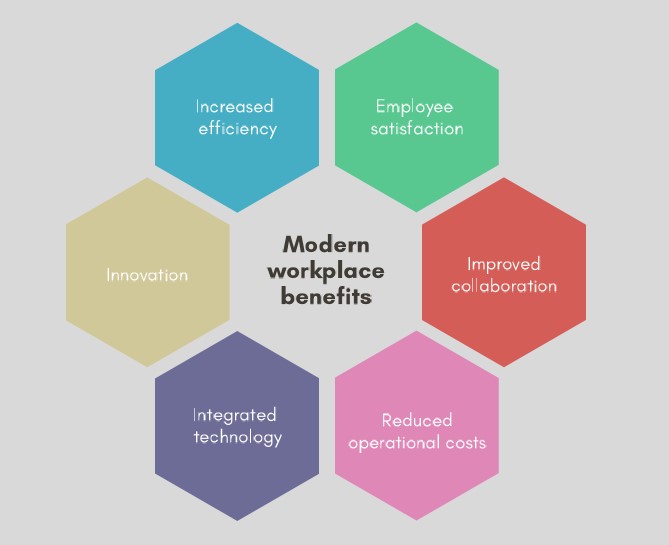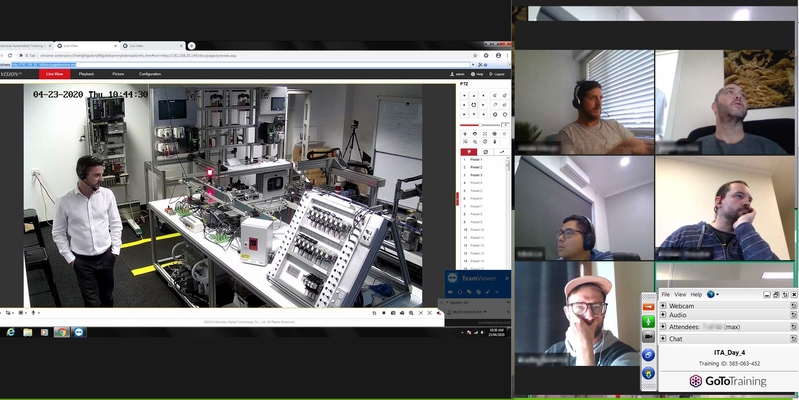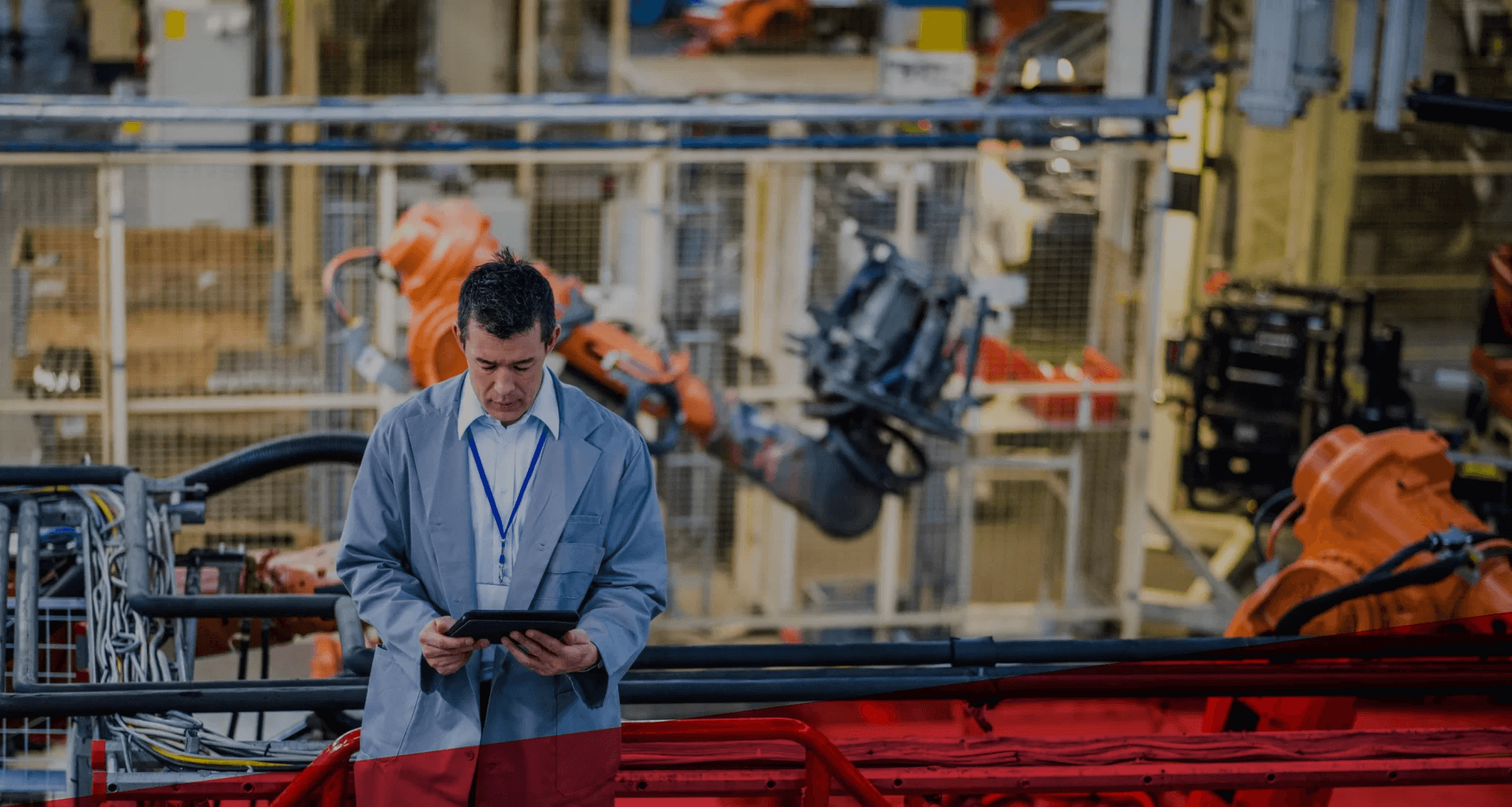Creating a modern workplace driven by innovation and intelligence
Workplaces and the jobs of tomorrow will look a lot different than they do today.
That’s the message that has been shared across every industry for more than 15 years. The term modern workplace has taken on a life of its own, presenting opportunities to some and difficult decisions for others.
Evolution of the digital workplace has been gradual, with some slower to react than others until recently, when the rate of adoption has been sped up.
Now, change is coming at a rapid rate as technology evolves and the world we live in becomes more unpredictable. Factors outside of our control have impacted the way we do business and the need to embrace integrated technology and distributed teams is more apparent.
While businesses can be delayed simply considering the scale of change needed, they risk losing a competitive edge.
In this blog, we explore how investing in a modern workplace can enable businesses to become more efficient and resilient, and explain some approaches SAGE provide for their customers.
What is a modern workplace?
Less about the physical location, a modern workplace is reflective of a way of working, one that allows distributed teams to work together, using technology to remain productive.

A modern workplace has a combination of characteristics, including:
• a company culture that encourages communication, knowledge sharing and innovation
• access to data and data analysis tools to support and enable better decision-making
• secure, smart tools and technologies that are integrated into business processes.
A modern workplace allows businesses to retain talent and stay competitive, while also enjoying benefits such as increased productivity and less overheads.
Rapid changes and upgrades to the modern workplace
While the global pandemic may have pushed businesses to make rapid changes, we now face the question of whether the short-term response has given us the motivation to work on becoming more agile and secure in operations. Suddenly, organisations have to address existing business flaws and determine how they can move forward in new conditions.
What we’re in need of is a long-term mindset for adapting to the modern workplace. At a time when the current situation is fluid, developing an ongoing response presents us with the opportunity to transform our workplaces.
What does a modernisation opportunity look like to us right now?
It’s been said that digitisation has very little to do with technology, instead it comes from empowering your people to identify and embrace improvement opportunities.
Your workforce is one of the greatest sources of value as you move to modernise operations. They hold invaluable information in finding ways forward as new systems and processes are planned and integrated.
Companies should focus on developing a culture and an environment where employees are encouraged to identify opportunities for improvement, and aim to attract the right talent. A modern workforce is one that is motivated by innovation and developing smarter ways of doing things.
For some organisations, hiring the right talent might involve recruiting contractors to fill skills gaps on a short, or long-term basis. For others, it might be developing graduate programs to bring in new digital skills.
How SAGE is enabling modern digital workplaces
A McKinsey article published earlier this year noted that the COVID-19 crisis pushed businesses further along the digital adoption pathway ‘almost overnight’.
Many of our customers were already on their own digital journeys. Each of our SAGE Group companies work closely with clients to build the right capability, technology and data into their businesses, so when market changes or unforeseen events such as COVID-19 occur, they can react.
Below we’ve explained a few ways the SAGE Group is working with clients every day to help them react swiftly, solve emerging problems and become more resilient.
1. Operational and maintenance improvements to reduce operational costs
Data and analytics have long played a role in working smarter, but as most organisations face reduced operational budgets, the need to do more with less is increasing.
Working smarter with initiatives driven by asset intelligence has helped many of our clients to implement preventative maintenance cycles, predict outcomes and optimise their performance.
SAGE Automation’s Asset Operations arm brings exceptional experience to this space and helps clients across a range of industry sectors to reduce their operating costs.
“The ability to be able to provide that sort of change management and support is an exciting direction of the business.” – Chris Muir, National Manager for Asset Operations.
Modern digital businesses run on data and the ability to draw on that insight to optimise performance is critical for reducing costs.
2. Manufacturing and the digital toolbox
There’s few places where opportunity for change is greater than in manufacturing.
Modernising the manufacturing plant can involve many things – drawing on existing data to drive insight, decentralising the manufacturing office and bringing in new technology such as applications to drive smarter planning.
With social distancing practices to adhere to, many businesses are discussing the need for wearable technology, greater automation of manufacturing processes and driving change in the way their manufacturing plant works. Nukon is helping clients navigate this tricky process by bringing together data, people, processes and machines to identify problem areas and get a clearer picture of their operations.
Implementing small, isolated processes make a big difference in the workplace – and focusing on quick wins can add a lot of value.
Read more: The 5 competencies of digitally transformed manufacturers
Analytics will also play a greater part in driving decisions in manufacturing, particularly for those seeing supply chain interruptions or moving toward demand-based supply chains.
According to Deloitte, data-driven decision-making will be hugely beneficial for coping with the effects of the pandemic.
“Having data and analytics at their core, insight-driven organizations are prepared to take the best decisions in an efficient manner. It enables them to manage core business operations in the most cost-effective way and (re-)act on a day-to-day basis to the many short and longer-term effects of COVID-19.”
Putting it simply - organisations who make these capabilities part of their long-term business plan are more likely to succeed than those who don’t.
3. Training – driving team collaborating, communicating and connecting
In recent weeks, the Australian Government has announced new programs to ensure Australia is preparing for the skills many industries will need in the future. As Industry 4.0 initiatives take greater hold across every industry, integrating digital specialists into businesses has become a priority. This has led to business leaders searching for a new class of para-professional.
 Cyber physical training delivered by Skills Lab during COVID-19.
Cyber physical training delivered by Skills Lab during COVID-19.
Working in the digital space already, our company, Skills Lab, has drawn on this knowledge with courses to meet this growing need. The recently launched Diploma of Applied Technologies will soon expand to include a paid-to-learn pathway for school leavers, known as the digital engineering apprenticeship combining on-the-job and off-site training.
“This new wave of digital specialists will provide a vital boost to the capabilities of Australian industry.” - Laura Mabikafola, General Manager, Skills Lab
Bringing apprentices into your team encourages collaboration across natural workgroups, as the apprentices learn and work alongside experienced technical team members.
You need a continuing culture of innovation
The process of transforming the workplace, and work practices, is always daunting. But by connecting your teams, encouraging training and embracing digital transformation, your business can reduce costs, increase agility and ensure you are prepared for future events.
A modern workplace ensures your team can work effectively towards the same goals and has the tools needed to help them do so.
In a time when many of us are making adjustments to our business plans, being innovative and adaptive is what will get us through. Across our SAGE Group brands, we are embracing the opportunity to help our clients adapt and address existing challenges.
Becoming a modern workplace isn’t a final destination and your business will need to constantly assess and review your position along the way. Rest assured that SAGE Group will be here to assist you.








.webp?width=457&height=173&name=Sage-Group-Embedded-Expertise-Logo(1).webp)